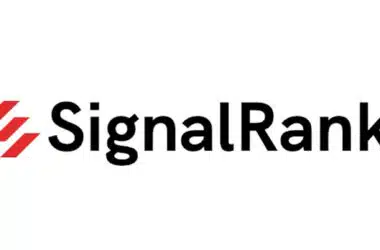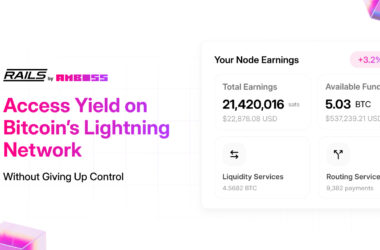The digital revolution is ushering in a new era where the lines between physical and virtual realities are increasingly blurred. At the heart of this transformation lies the metaverse—a collective virtual shared space created by the convergence of virtually enhanced physical reality and physically persistent virtual reality.
As this digital frontier expands, financial technology (fintech) is playing a pivotal role in shaping the economic landscape of these immersive worlds. This evolution is not only redefining how we perceive ownership, value, and transactions in the virtual realm but is also leading to a surge in fintech jobs.
Table of Contents
The Metaverse: A New Digital Frontier
The metaverse is no longer just a futuristic concept from science fiction; it is becoming a tangible extension of our physical world. Platforms like Decentraland, Roblox, and Fortnite are pioneering this space, offering users immersive environments where they can interact, create, and transact. These platforms represent complex ecosystems with their own economies, social structures, and cultures.
In these virtual worlds, users can attend concerts featuring real-life artists, explore digital art galleries showcasing non-fungible tokens (NFTs), and participate in economies that mirror real-world financial systems. For instance, Fortnite hosted a virtual concert by Travis Scott that attracted over 12 million viewers, showcasing the potential of the metaverse as a platform for large-scale events.
Fintech’s Role in the Metaverse and the Rise of Fintech Jobs
Fintech is the backbone of the metaverse economy, providing the tools and platforms necessary for seamless financial transactions in a virtual environment. The integration of fintech solutions enables:
- Digital Payments: Users purchase virtual goods and services using digital currencies, often facilitated by blockchain technology for security and transparency.
- Cryptocurrencies: Virtual economies frequently utilize cryptocurrencies like Bitcoin. Ethereum, and platform-specific tokens, enabling cross-border transactions without traditional banking limitations.
- Smart Contracts: Automated, self-executing contracts with terms directly written into code facilitate complex transactions like virtual property sales and revenue sharing.
This burgeoning ecosystem is leading to a surge in fintech jobs. Professionals with expertise in blockchain development, cybersecurity, digital asset management, and virtual financial services are in high demand. Companies are seeking talent to build and secure these new financial systems, manage virtual transactions, and develop innovative financial products tailored for the metaverse.
The Virtual Real Estate Boom and Fintech Employment Opportunities
One of the most insane developments in the metaverse is the surge in virtual real estate transactions. It sounds absurd but virtual land is selling like hot cakes in the metaverse. Virtual land parcels in platforms like Decentraland and The Sandbox are being bought, sold, and developed much like physical real estate. High-profile sales have made headlines. For example, a piece of virtual land in the Sandbox sold for over $4.3M and in Decentraland sold for over $2.4 million in cryptocurrency.
This boom is creating numerous fintech jobs:
- Virtual Asset Valuation Experts: Professionals who assess the value of virtual properties and assets.
- Digital Realtors: Agents specializing in the sale and development of virtual real estate.
- Blockchain Legal Advisors: Experts who navigate the legal aspects of virtual property ownership and transactions.
Virtual Goods and Services: Expanding Fintech Careers
Real estate is not the only thing being sold like hot cakes in the metaverse. The metaverse economy also thrives on the trade of virtual goods and services. Users spend real money on:
- Avatars and Skins: Personalization is key in the metaverse. Unique avatars, clothing, and accessories allow users to express themselves and stand out.
- Digital Assets: Items like weapons, tools, or vehicles enhance user experiences in games and virtual environments.
- Experiences: Virtual concerts, art exhibitions, and interactive events often require ticket purchases or subscriptions.
This market expansion is fueling the creation of fintech jobs in areas such as:
- Payment System Development: Creating secure and user-friendly payment gateways for virtual transactions.
- Fraud Prevention Analysts: Specialists who protect users and platforms from fraudulent activities.
- Data Analysts: Professionals who interpret transaction data to improve services and user experiences.
NFTs, Digital Ownership, and Career Growth in Fintech
Non-Fungible Tokens (NFTs) have revolutionized digital ownership within the metaverse. NFTs are unique digital tokens authenticated on a blockchain, ensuring verifiable ownership of digital assets. They have several applications:
- Art and Collectibles: Digital artists sell original works as NFTs, providing scarcity and value to digital art. Beeple’s NFT artwork sold for $69 million at Christie’s auction house.
- Virtual Real Estate Deeds: Ownership of virtual land is represented through NFTs, simplifying transactions and ownership proof.
- In-Game Assets: Items and characters are tokenized, allowing users to own and trade their digital possessions outside the game’s ecosystem.
The NFT boom is leading to specialized fintech jobs such as:
- NFT Marketplace Developers: Building platforms where NFTs can be bought, sold, and traded.
- Blockchain Engineers: Improving the efficiency and scalability blockchain networks supporting NFTs.
- Compliance Officers: Ensuring that NFT transactions meet regulatory standards and protect intellectual property rights.
Challenges and Opportunities for Fintech Professionals
While the metaverse and fintech integration offer exciting prospects, several challenges present opportunities for professionals seeking fintech jobs:
- Regulatory Uncertainty: Navigating the evolving legal frameworks governing virtual transactions, cryptocurrencies, and digital asset ownership requires expertise.
- Security Concerns: Addressing the risks of fraud, hacking, and theft in digital platforms necessitates skilled cybersecurity professionals.
- Economic Disparities: Developing solutions to ensure accessibility and inclusivity in the virtual economy can drive social impact.
These challenges open doors for fintech jobs in:
- Regulatory Compliance: Experts who ensure adherence to laws and regulations in virtual transactions.
- Cybersecurity: Professionals dedicated to protecting digital assets and user data.
- Financial Inclusion Specialists: Innovators creating accessible financial services within the metaverse.
A Glimpse into the Future: Fintech Jobs in an Evolving Metaverse
The intersection of the metaverse and fintech is forging a new frontier in how we perceive economies, ownership, and interaction. As the metaverse continues to evolve, it is likely to become an integral part of our daily lives, blurring the lines between the physical and digital. This evolution will significantly impact the job market:
- Global Virtual Economies: Fintech professionals will develop and manage complex virtual economies that operate on a global scale.
- Cross-Reality Financial Services: There will be a demand for services that seamlessly integrate physical and virtual financial transactions.
- Educational Platforms: The need for education in virtual financial literacy will create fintech jobs focused on training and user support.
The future holds immense potential for those pursuing fintech jobs. As businesses and individuals increasingly engage with the metaverse, the demand for skilled professionals who can navigate this complex landscape will grow exponentially.
Conclusion
Fintech is not just facilitating transactions within the metaverse; it is enabling the very existence of virtual economies by providing the infrastructure for secure, transparent, and efficient financial activities. This synergy is leading to a proliferation of fintech jobs, offering exciting career opportunities for those ready to embrace this digital revolution.
By understanding and engaging with the financial mechanisms of the metaverse, individuals and businesses can position themselves at the forefront of innovation. The rise in fintech jobs reflects the growing importance of this sector in shaping the future of virtual economies.


















Recent Comments